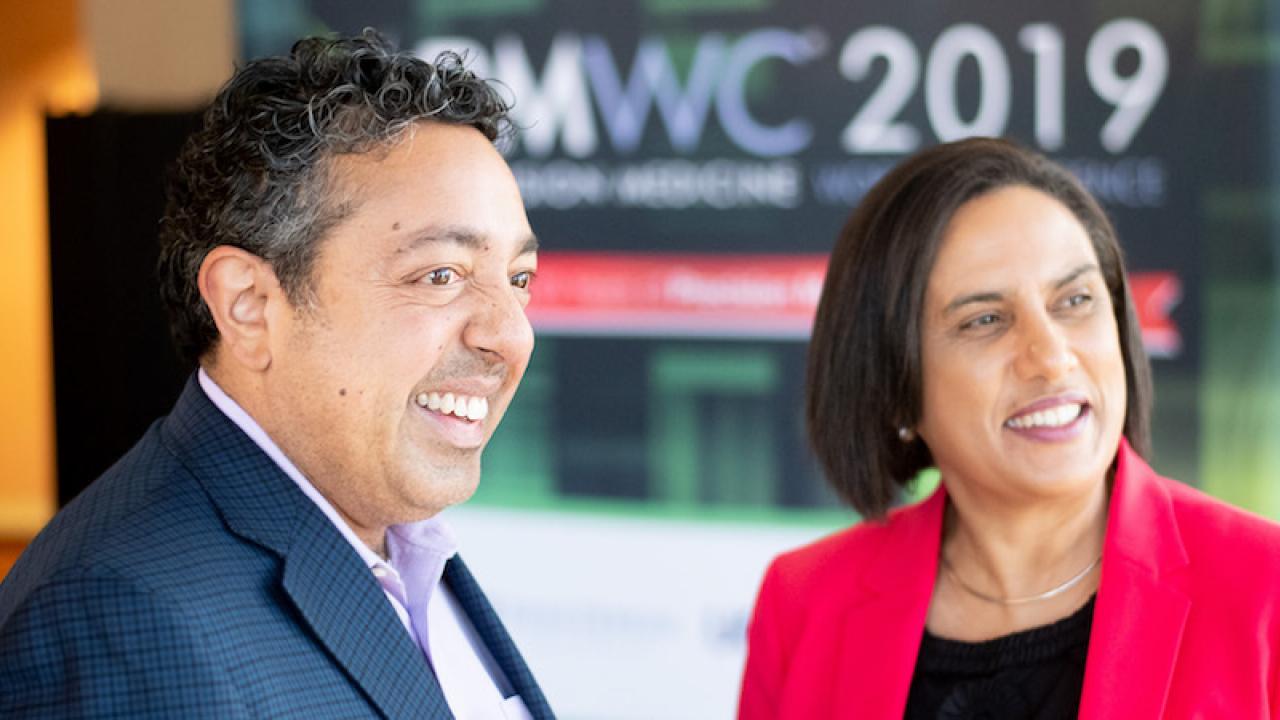
For the fourth year, UCSF co-hosted the Precision Medicine World Conference, which attracted attendees from 35 countries to hear about the growing prominence of data science, artificial intelligence, and deep learning that is creating a sea change in nearly every aspect of health care and biomedical research.
With five different thematic tracks and 400 speakers, the conference showcased UCSF’s leadership in precision medicine, which has continued to expand since Chancellor Sam Hawgood first named it as one of four institutional priorities in 2015.
UCSF Chair of Epidemiology and Biostatistics Kirsten Bibbins-Domingo, MD, PhD, the inaugural vice dean for Population Health and Health Equity, opened the three-day event by affirming the university’s commitment to precision medicine as part of its public mission of advancing health worldwide. She urged attendees to reflect on how extraordinary science, discovery, and innovation can be used to foster health equity, noting that “diversity in science is simply good science.”
In the first fireside chat of the conference, Atul Butte, MD, PhD, director of the Bakar Computational Health Sciences Institute (BCHSI), spoke of his vision for the role of artificial intelligence in medicine. Refuting the dichotomy of “physicians vs. AI,” he asserted that the actual gap will be “doctors with AI versus doctors without AI.” Using the examples of expert tax advisors and skilled car mechanics, Butte made the case that instead of putting doctors out of work, new computational tools and technology will give physicians “superpowers”to mine the immense amounts of data being generated in biomedical research and clinical care, including better understanding of human genetics.